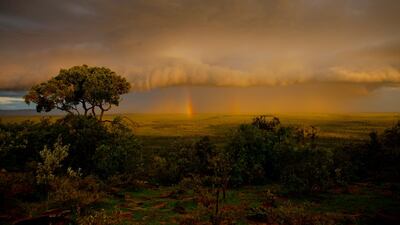The collapse in global tourism is putting wildlife at increased risk of illegal hunting, the World Wildlife Fund has warned.
The wildlife protection organisation said communities who depended on tourism for revenue had been “hit hard” by plummeting visits.
It has meant local authorities, particularly in Africa, have cut jobs and pay in the conservation sector, giving an advantage to poachers, the WWF said.
The group estimated the £72 million ($93m) generated by tourism in wildlife-protected areas in East Africa had “virtually dried up” since the start of the pandemic.
The WWF’s new “Land for Life Appeal” aims to raise £2m in matched funding to improve the lives of more than 27,000 people in southern Kenya and northern Tanzania, while protecting critical “wildlife corridors” to allow elephants and lions to move freely.
The project aims to develop new ways for African communities to make money, reducing their reliance on tourism, through such as industries as bee-keeping, improved livestock and small-scale farming.
“Nobody wants to see more people or threatened animals suffering in this devastating pandemic and we hope our supporters will back our vital appeal this Christmas,” said the WWF UK's Africa conservation manager, Dr Jenny Cousins.
UK Foreign Secretary Dominic Raab said: “This project will help to support people and wildlife in Kenya and Tanzania, while also protecting precious species and habitats.”
Donations to WWF’s Land for Life Appeal can be made at wwf.org.uk/life.
Donations made before February 2, 2021, will be matched by the UK government to a maximum of £2m.










